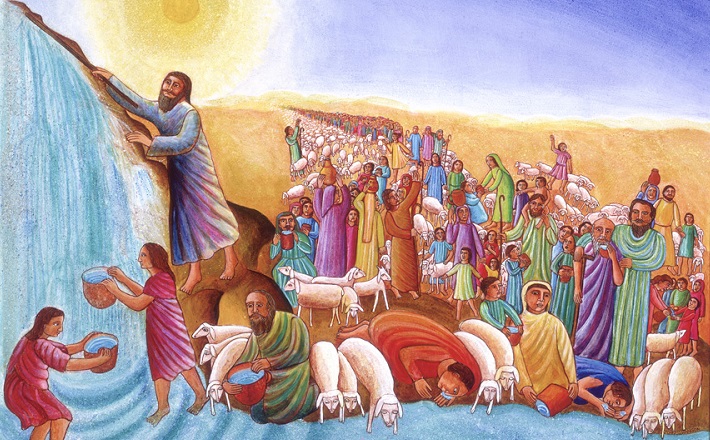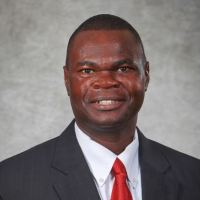Commentary on Acts 10:1-17, 34-35
The journey from cultural religion to Christianity is both an exciting and a challenging one.
It is exciting because humanity is eager to preserve and conserve what is considered religious ideals. On the other hand, it is challenging in that when religious humanity is encountered by God or an overwhelming, yet gentle power, the resistance turns into acceptance. It is with this perspective that readers of the Book of Acts should possibly read and embody its message.
The traveling motif on the Gaza road invites 21st century Christian leaders to an active engagement with religion and contextualization of the Gospel. The following verses, ‘Cornelius, a centurion, a devout man who feared God with all his household, gave alms liberally to the people and prayed constantly to God,” (10: 1-2) are a mountaintop message in Acts. The message of inclusion of all peoples, nations, ethnicities, man and women into the fellowship of God’s people comes into play.
It is not the power of Peter’s sermon that brings others into fellowship with God but the power of Holy Spirit. This realization is what is needed in the 21st century Church and without the recognition of power of the Holy Spirit, the Global Church will indeed find it challenging to welcome outsiders into the fellowship of God’s people.
In Acts 10: 34-48, the ripple effects of being engaged and encountering God are evident not only to Christian believers, but also to characters such as Peter whose role and function in the ministry of God, the Son and the Holy Spirit is to advance the mission of the Church. While Acts 9 portrays the challenges humanity faces in accepting others, Acts 11 celebrates the good news of welcoming others, especially when done in the context of ministry. Peter’s vision is a narrative of conversions and of Peter’s own transformation to the way God loves and invites all people into Kingdom work. Jew-Gentile relations are not human work but God’s work, and this is a mystery to Peter who confirms to his audience that “God shows no partiality…” (Acts 10:34 NSRV).
It is indeed the call of the church to retell this narrative of God’s embrace of outsiders and all ethnic peoples who are included in the mission of God. The entire narrative of the book of Acts is about God’s mission. The Holy Spirit is behind all that happens in Acts, and consequently in the Church.
It seems natural to read Acts 10 as a story about Peter’s conversion and transformation, but when we read in the context of the 21st century church, the narrative summons both laity and clergy to a conversion of heart, soul and mind. Like Peter, 21st century Christians seem to have difficulties welcoming and accepting outsiders into the fellowship of God. Simply put, Acts 10: 34-48 is a challenging but fascinating message to all who claim to be serving God and all who are part of the Church. Our accepting of ‘others,’ is indeed a form of witnessing to the Good news of Jesus Christ.
While Luke records the narrative as Peter’s vision, we should perhaps regard this as a revelation and story we should all tell our churches. God’s impartiality, as Peter says, should be read as one of the criteria of worshiping God in a diversified world. The message we discern from Acts 10: 34-48 is that God’s good news is open to all people. God, regardless of people, is able to call any religious/cultural people into Christian fellowship.
Like Peter, we are called to be missionaries to others and we should also be open to be missionized by others. Like the Gentile Churches of Peter’s time, the Holy Spirit came on believing Gentiles, and the Spirit is already at work on outsiders and the Global South or African, Asian, Latin and South American Pentecostal Christians are a good example. The Holy Spirit shows no partiality in that all believers from all over the world are able to receive the Holy Spirit, and be drawn into God’s mission.
God’s creation through invitation of outsiders should be a welcoming message to those who are afraid of ‘others.’ With good news, comes diversity and that is the Good News we read in the book of Acts.
PRAYER OF THE DAY
God of all nations, you made it clear that all people are invited to partake of the glory of your salvation. Help us to invite all people to your goodness, so that no one might be forgotten in your saving grace. We pray these things in the name of Jesus Christ, our Savior and Lord. Amen.
HYMNS
Just a closer walk with thee ELW 697
Rock of ages, clefts for me ELW 623
Create in me a clean heart ELW 188/Various
I want Jesus to walk with me ELW 325, UMH 521, NCH 490
CHORAL
Just a closer walk, arr. Stan Pethel


May 5, 2019